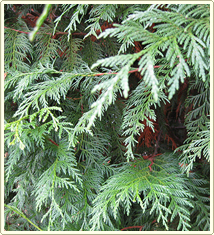A Way Home – Ecopsychology and the Renewal of Ourselves and Our World
…ecology needs psychology, psychology needs ecology. The context for defining sanity in our time has reached planetary magnitude”.
Theodore Roszak, in Ecopsychology: Restoring the Earth, Healing the Mind
We live in an extraordinary historical moment – beset by challenges on all sides, but also ripe with possibility. In the midst of droughts and hurricanes, high oil prices and economic hardship (not to mention the looming specters of climate change and peak oil), it takes courage and optimism to remain engaged with the world.
And yet, there are people everywhere working actively toward a future very different from our present. From stream restoration, to urban gardening, to the Occupy movement; from non-violent communication, to neighborhood associations, to permaculture training, to creation spirituality, people are coming together. Mostly under the radar of the media and outside of government, people are creating the beginnings of a new world. The answers to the critical dilemma that society faces are being found in the act of living. Joanna Macy and David Korten have described this cultural transformation, already underway, as The Great Turning.
In Coming Back to Life, Joanna Macy describes three aspects of creative change which she sees occurring in a spontaneous, decentralized manner: 1) “Holding actions” – what we usually think of as activism, i..e. strengthening the Clean Air Act, or organizing to stop an increase in coal or oil exports; 2) “an analysis of structural causes and creation of alternative institutions”, including things like: exploring the economic, social and political underpinnings that work against sustainability, the growing cohousing movement, increasing the energy efficiency of cars, appliances, housing, etc.; and 3) “A shift in world views and values” – the exploration of questions of meaningfulness, the impacts of change, and who we are as human beings in this world.
It is in this third area, the explorations of meaningfulness and what it means to be human, that ecopsychology is found. While ecology studies the relationships among species, ecopsychology explores how our human relatedness with nature influences our psychology. Ecopsychology begins with the awareness that we are interconnected with the natural world with every breath. It goes on to recognize that our appreciation of beauty has evolved with the natural world as its first reference point. We find natural imagery in poetry, art, dreams, and even music. Mystics of all religious traditions, all over the world, throughout human history, have sought spiritual illumination and solace in the natural world.

